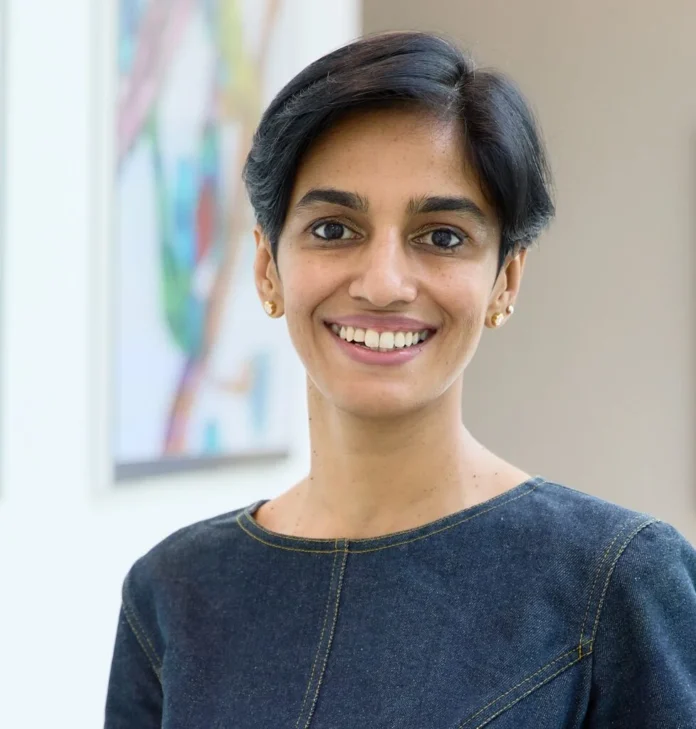CAMBRIDGE, MA—The Kempner Institute for the Study of Natural and Artificial Intelligence at Harvard University announces the appointment of Dr. Kanaka Rajan, the first faculty member hired within the recently launched Kempner Institute. As a founding faculty member at the Kempner, Dr. Rajan will serve as an institute investigator. She will also have a dual appointment, serving as a member of the faculty in the Department of Neurobiology at Harvard Medical School.
Working jointly with the HMS Department of Neurobiology and the Kempner Institute, Dr. Rajan will support the intersecting research, scientific, and educational missions of both communities. Dr. Rajan starts in September 2023.
“We are thrilled to have Dr. Rajan join the Kempner, where she will play a key role in helping to shape and advance the institute’s research program,” said Kempner Co-Director Bernardo Sabatini. “She is a true leader in the field, using innovative techniques to tackle big, difficult questions, and expanding the possibilities for how we use artificial intelligence and machine learning to understand the enduring mysteries of the brain.”
“Computational approaches to understanding brain function is a frontier area of research,” said David Ginty, chair of the Department of Neurobiology at Harvard Medical School. “Kanaka Rajan has already made enormous contributions to this area of research, and we are fortunate that she will join our community at Harvard Medical School to further advance and galvanize the field of neurobiology. We are poised to make progress in this exciting area of research in partnership with the Kempner Institute.”
Dr. Rajan investigates how animals and humans learn, remember, and decide using neural circuits in their brains. She combines approaches from physics, mathematics, and engineering with data analysis to discover the neural mechanisms that control our cognitive abilities and behavioral repertoires, and identify how they go wrong in neuropsychiatric diseases.
As a leader in the field of computational neuroscience, she will expand the community of researchers across Harvard using computational approaches to study the brain. Her research program bridging neuroscience and artificial intelligence will continue to develop and apply cutting-edge tools and methodologies to uncover unifying theories about the foundations of natural and artificial intelligence. At Harvard, Dr. Rajan and her team plan to answer pressing questions in neuroscience, including:
- How do multiple brain areas coordinate to give rise to behavior?
- How do we perform many tasks, solve new problems, and learn with very little instruction?
- What brain mechanisms control our ability to function in groups and societies?
Dr. Rajan comes to Harvard from the Icahn School of Medicine at Mount Sinai in New York, where she was a tenured Associate Professor in the Department of Neuroscience and the Friedman Brain Institute. Dr. Rajan completed her postdoctoral fellowship at Princeton University and received her Ph.D. from Columbia University.
Dr. Rajan has received many awards recognizing her research and contributions to science, including: CIFAR Azrieli Global Scholars Program, Allen Institute’s Next Generation Leaders Council, Harold & Golden Lamport Basic Science Research Award, McKnight Scholars Award, Young Investigator Award from the Brain and Behavior Foundation, Understanding Human Cognition Scholar Award from the James S. McDonnell Foundation, Research Scholars Awards from the Di Sabato Foundation and the Dyal Foundation, and a Sloan Research Fellowship. Her work is supported by R01 funding from the National Institutes of Health (NIH), and FOUNDATIONS and CAREER awards from the National Science Foundation (NSF).


